Profile
Ms Prinsca Godoh, adding professional touch to auto spraying

The limited job opportunities in the world is fast eroding the notion that some professions are the preserve of men.
It is interesting to note that, women have ventured into more daring professions to prove a point that what men can do, women are capable of doing.
By dint of hard work and perseverance, women have turned engineers, medical doctors, painters, exquisite artists, renowned academicians, bus drivers, pilots and top-notch professionals among others.
Following the example of such women, 28-year-old Ms Prinsca Akorfa Godoh, a native of Ve Gbordome in the Volta Region who had developed a passion for auto spraying, enrolled at the Xorlali Spraying Shop at Adentan, Accra to learn the trade.
Ms Godoh said her mother readily gave her blessings when she sought her consent to learn the trade. “If that is what you intend to do, then l have no objection,” she said.
According to Ms Godoh, the man from whom she learnt the trade encouraged her to remain focused on the job because there was a lady apprentice who had enrolled and was doing pretty well before she joined.
She admitted that, though the trade looked very simple and attractive, learning it was not as easy as one would have thought. The task to sandpaper a car was one of the most difficult aspects of the trade which nearly put her off.
Ms Godoh described how an automobile sprayer has to apply filler paste on the rugged surfaces of a car, sandpaper it after which putty was applied.
She said the application of putty at this stage of the work was basically to help fill the minor holes which were left on the car.
She explained that different sizes of sandpaper were used at different stages of the preparation process to make the final spraying look smooth and nice.
Having finished this stage, the car would be washed to clean dust that might have percolated on it. The sprayer would then go ahead to cover parts of the car, which were made of glass and rubber with paper to make way for the first spraying.
Ms Godoh said the car would be checked again to find out if there were any potholes left and fill them before the final spraying would be carried out.
She said she was surprised about the high commendation she received after the successful completion of her first spraying job. The car owner was exceedingly glad about the professional touch she had applied to her work.
Apprenticeship
The young sprayer intimated that she commenced her apprenticeship in 2008 when she was only 16 years old.
Ms Godoh said she completed her apprenticeship after three- and-a – half years, opened a shop at Frafraha on the Adentan -Dodowa road, and has since trained three people, while two apprentices are under training.
Diversification
“Unlike the sale of food which demands that people should purchase every day, my work does not follow in that line. There are times that the job comes in series and there are times that one becomes idle with no work to be done,” she said.
Being innovative in her approach to work and ever ready to seize any opportunity whenever possible, Ms Prinsca Godoh has opened a shop where she sells paints for spraying cars, but ends up using the paints more for her work.
She said she had added the sale of cooked rice, beans, banku and akple to occupy herself whenever there was no job.
Plans
Ms Godoh said her desire was to own a spraying booth where quality spraying or good work would be done. She said quality product was that which kept many renowned entrepreneurs in business over the years.
Additionally, she would like to train more capable hands to be in charge of the job while she stepped back to assume a supervisory role in the future.
Her advice to the youth especially the girls, is that, they should try their hands on other jobs and work hard to achieve heights their intellect would permit them.
Education
Although Prinsca completed the Vedeme Local Authority Elementary School, she could not continue her education because she lost her father when she was a baby. Unfortunately, her mother, a single parent, could not support her.
Social Life
Prinsca who is the third and last child of her parents, attends the Pentecost Church, Adentan, Ewe Assembly and she is devoted to serving God.
Her hobbies include cooking, doing household chores, dancing and listening to good music. She likes boiled rice with cabbage stew.
By Raymond Kyekye
Profile
Albert Litela Obidiaba: The artist who wove Ghana’s soul into the King’s Baton

When the world’s eyes turn to the King’s Baton on its global journey, one of Ghana’s most profound artistic stories travels with it. It will be a story of creativity, culture, and national pride crafted by Albert Litela Obidiaba.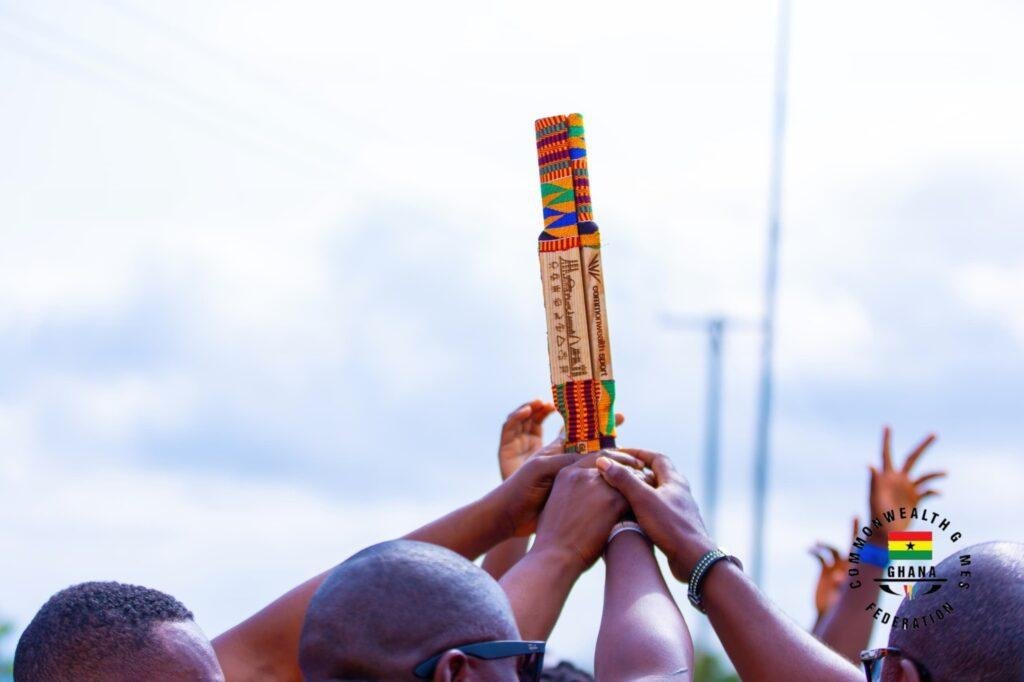
From the quiet town of Old Baika in the Oti Region, Albert’s journey as an artist has always been about telling stories. It is not just through words, but through symbols, textures, and meaning.
“From a young age, I was drawn to the power of art, knowing how colours and textures can capture not just emotion but culture and identity,” he recalls.
Today, his name has become synonymous with innovation rooted in traditional bridge between Ghana’s past and its global creative future.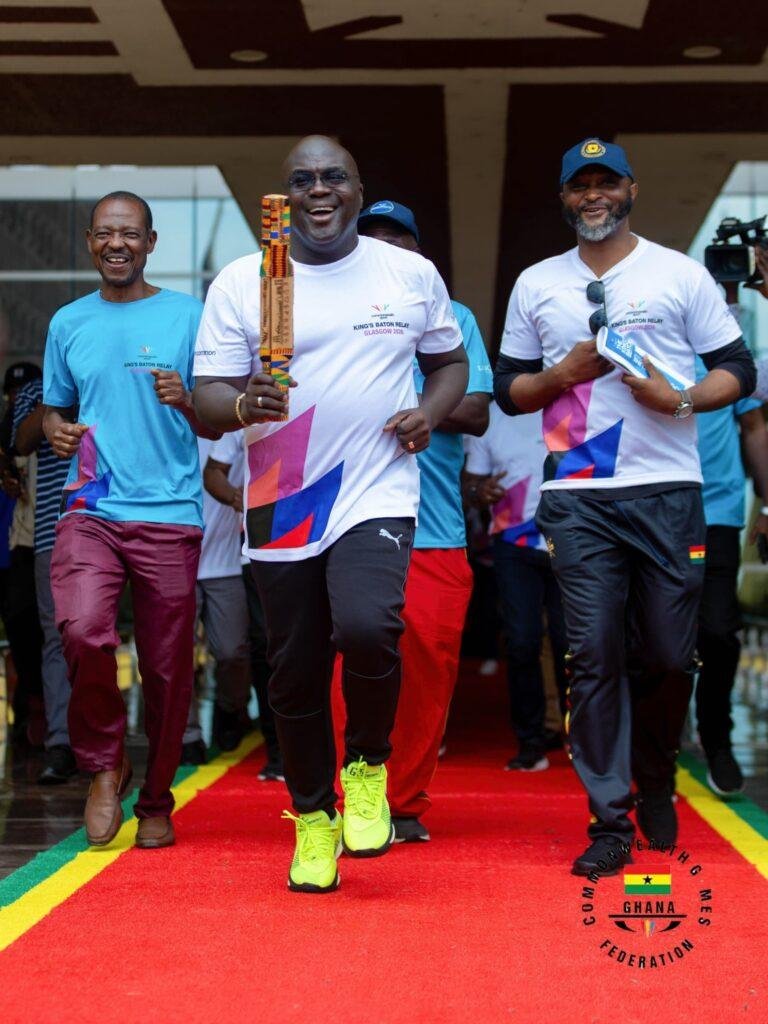
Albert’s love for art was born from curiosity. Surrounded by the vibrancy of Ghanaian culture; the patterns of kente, the stories behind Adinkra symbols, and the textures of daily life, he began sketching and crafting early on.
“Simple things told deep stories,” he says. “That fascinated me.”
As he matured, his art evolved into a personal mission to preserve and reinterpret Ghana’s heritage for a modern audience. His style reflects a seamless blend of culture and contemporary design, each piece a narrative of unity, history, and pride.
“I see art as storytelling through form and symbolism, it should feel rooted in purpose yet speak to today’s world,” he explains.
When the call came to design Ghana’s version of the King’s Baton, Albert saw it as both a national duty and a creative calling.
Recommended by mentors like Mr Charles Osei Asibey, who trusted his talent and understanding of Ghanaian symbolism, he embraced the project wholeheartedly.

His vision was clear; to create a piece that would embody unity, pride, and the enduring spirit of Ghana.
Drawing from traditional motifs, he integrated textures inspired by kente weaving, representing hard work, continuity, and creativity. The golden tones symbolise strength and dignity, while the contours and natural motifs mirror Ghana’s landscapes and people.
“The King’s Baton had to tell our story of who we are, what we value, and how we see the world, it is more than art, it is identity in motion,” he said.
Every etch, every pattern carries meaning. From concept to completion, the entire process took three intense weeks which were filled with research, design sketches, consultation, and collaboration with skilled artisans.
“It was days and nights of work, but a lifetime of meaning,” he says with quiet pride.
Creating a design that represents all of Ghana’s diverse cultures was no small feat. Albert had to balance aesthetics, authenticity, and technology thereby using sustainable wood, carefully treated and certified, to reflect the nation’s commitment to nature and preservation.
“It wasn’t easy finding the right mix,” he admits. “But those challenges pushed me to think deeper. They made the final piece stronger — both artistically and symbolically.”
For Albert, Ghanaian culture is both muse and message. His works echo the values of unity, strength, persistence, and wisdom, drawn from Ghana’s traditions.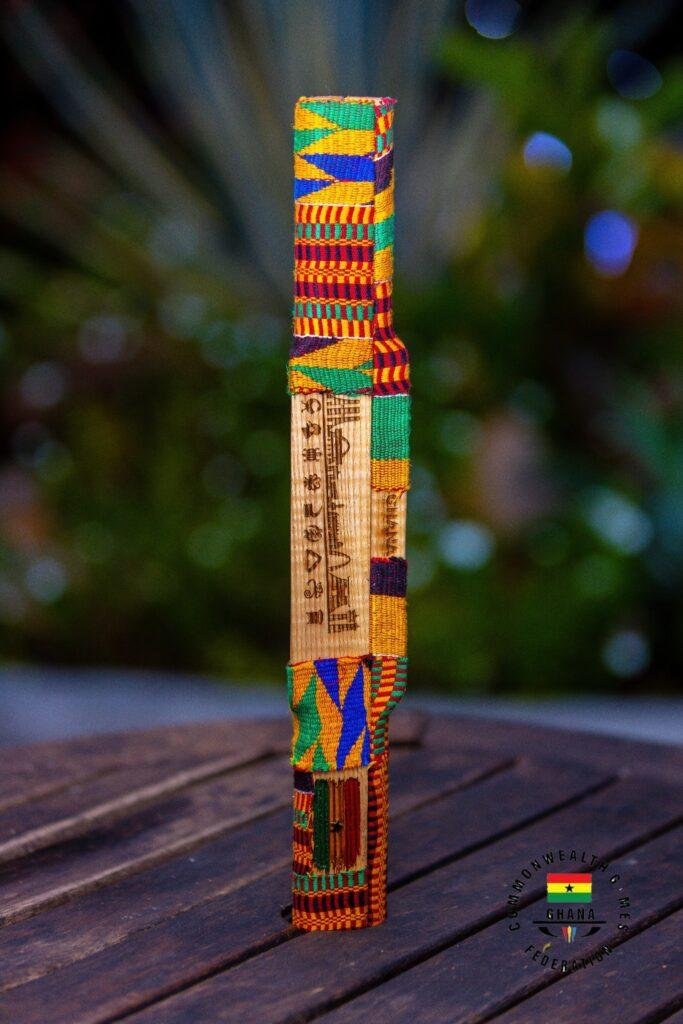
“Art preserves who we are and every line and symbol tells a story of belonging,” he said, and believes art is one of the most powerful tools for building national pride.
Designing the King’s Baton has been a defining moment in his creative journey and that it deepened his appreciation for cultural storytelling. “It taught me that creativity is also a form of service,” he said.
The experience has opened new professional doors, but more importantly, it gave him a renewed sense of purpose making him embrace a call to national duty.
“My soul will be glad even after my days on earth are over,” he said beaming with smiles.
Beyond the King’s Baton, Albert has worked on numerous projects celebrating Ghanaian identity through contemporary art and design. His ongoing works explore symbolism and heritage in new forms which includes blending materials, stories, and styles from across Ghana’s regions.
He is currently preparing projects that continue the conversation the baton began. They are about unity, creativity, and Africa’s evolving artistic voice.
To young artists aspiring to make their mark, Albert’s advice is for them to believe deeply in their craft and that the world is always looking for authenticity “which comes from knowing who you are and where you come from.”
On how he wants to be remembered, he said, “I want to be remembered as an artist who used creativity to celebrate culture and connect people. If my name is remembered as the one who designed Ghana’s version of the King’s Baton, that will be enough, because it means I carried Ghana in my hands, and shared her with the world.”
By Esinam Jemima Kuatsinu
Join our WhatsApp Channel now!
https://whatsapp.com/channel/0029VbBElzjInlqHhl1aTU27
Profile
Survival to service: Margaret Odame Donkor the breast cancer preacher

A ‘trotro’ bus heading to Nsawam was filled with the usual sounds from conversations, music, and sometimes a preacher delivering a message.
But when Margaret Odame Donkor rises to speak, she does not preach salvation or sell herbal remedies. Instead, she shares her journey as a breast cancer survivor, urging passengers to examine their breasts regularly, seek medical help early, and never lose hope.
Her pulpit is not a church, but the crowded minibuses of Ghana’s public transport system. Her message is not about repentance, but about survival.
She urges women to check their breasts regularly, encourages men to support their wives during health challenges, and reassures everyone listening that a cancer diagnosis is not the end of life.
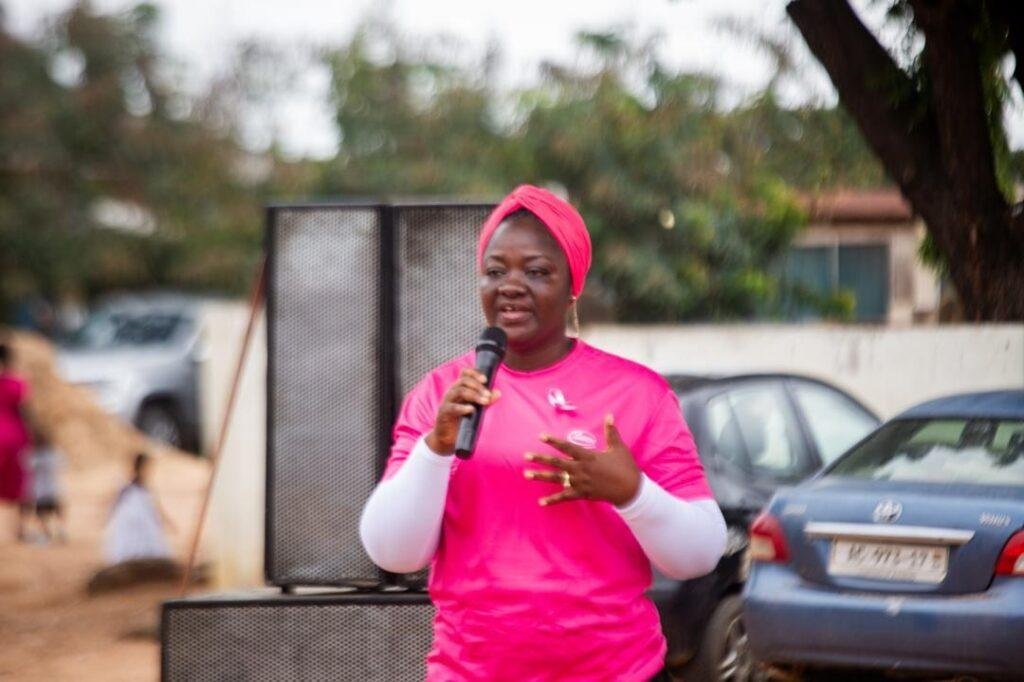
For Margaret, creating awareness is more than a duty-it is a calling born out of personal pain, fear, and triumph.
Her words carried weight because they come from lived experience.
At age 48, Margaret has walked through the valley of fear and pain, battled stage three invasive carcinoma, and emerged not just a survivor but an advocate determined to educate others.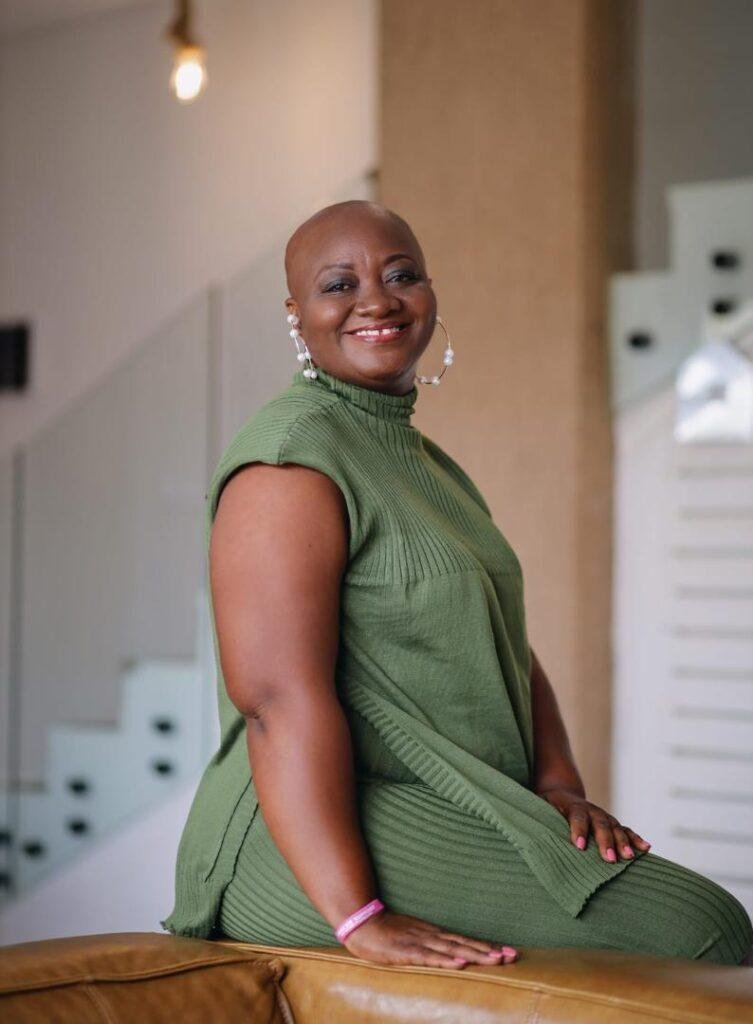
Cancer journey
Margaret’s encounter with breast cancer stretches back decades. At 22, she discovered a lump in her left breast. It was removed and declared benign. Relieved, she skipped regular checks and moved on. Then in 2021, the lump reappeared—this time spreading toward her armpit.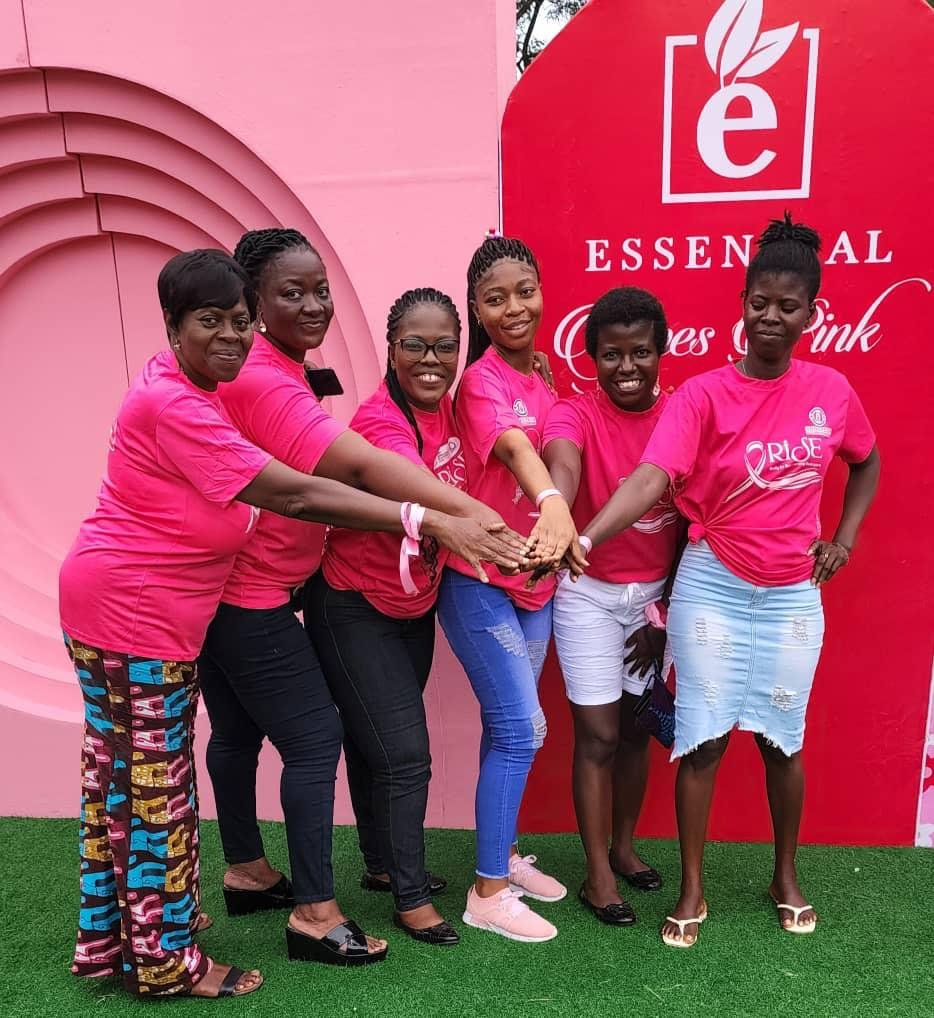
At a church screening in October 2022, doctors detected suspicious lymph nodes. Further tests confirmed her worst fear: stage three invasive carcinoma.
“It wasn’t easy,” she recalls softly. “But my faith in God kept me strong. My husband, children, family, friends, and colleagues formed an army behind me. Their prayers, visits, and encouragement gave me the courage to fight.”
“Be grateful every day because you never know what tomorrow may bring. No one has it all, but with love and support, you can endure,” she stated.
Her greatest fear remains recurrence and not living long enough to see her children graduate and become the people she dreams for them to be.
Before cancer disrupted her life, Margaret had found purpose in interpretation. In 2020, a friend spotted a Judicial Service vacancy and encouraged her to apply. After years of unsuccessful attempts at government jobs, she was reluctant, but she tried once more. This time, she succeeded and was posted to the Eastern Region, her home.
Today, she works at the Nsawam District Court, one of the busiest in the area. On a typical day, she arrives at 7:30am, prepares dockets, and confers with magistrates. She interprets proceedings in Twi, Ga, Hausa, and occasionally Ewe, ensuring that justice was accessible to all.
Her role is demanding. Cross-examinations require her to switch quickly between English and local dialects, while marriages often call for interpreting vows in couples’ preferred languages. Still, she thrives. “The registrars and magistrates I’ve worked with have been amazing. They make the environment very comfortable,” she stated.
Beyond the courtroom, Margaret is also an entrepreneur. In 2017, she founded Nubreed Décor, an events decoration business born from her childhood love for beautifying spaces. She recalls cutting paper decorations as a child and helping her cousin rent out chairs and decorate venues.
Balancing décor with court work was tough, and her health struggles after surgery made it even harder. Radiation left her with persistent rib pain, forcing her to slow down. “Now I hire more hands, which makes business expensive, but it helps me achieve my goals,” she explained.
Her biggest challenge as an entrepreneur remains finance. “The event industry is huge, but I have to work at my own pace and focus on my niche,” she admited.
Cancer changed how Margaret values people and relationships. She learned that those you least expect often become your strongest supporters. She urges families to stand by patients with prayers, encouragement, and financial support, reminding society that a cancer diagnosis is not the end of life.
Her advocacy extends beyond awareness talks. She dreams of establishing a counselling centre for young people and hopes Ghana will expand access to mammograms and radiotherapy centres. “Every patient deserves a chance at survival,” she said firmly.
She urged the youth to live peacefully and be their brother’s keeper, learn to be content and rely on God.
To women, she asserted that, “love yourselves and make breast checks routine while calling on Ghanaians to be open-minded, avoid being judgmental, and show love.
By Esinam Jemima Kuatsinu

 Profile6 days ago
Profile6 days agoAlbert Litela Obidiaba: The artist who wove Ghana’s soul into the King’s Baton

 News6 days ago
News6 days agoDaddy Lumba’s wife, children run to court to injunct December 6 funeral arrangements

 News1 week ago
News1 week agoPresident Mahama to meet Auditor-General, Chief Justice and Attorney-General over misuse of public funds






